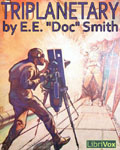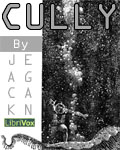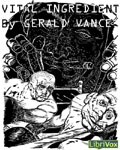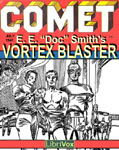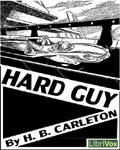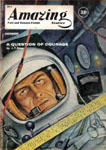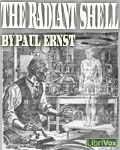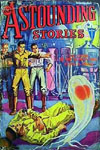

 Way Station
Way Station
By Clifford D. Simak; Read by Eric Michael Summerer
Audible Download – Approx. 7 Hours 5 Minutes [UNABRIDGED]
Publisher: Audible Frontiers
Published: 2009
Themes: / Science Fiction / Aliens / Galactic Civilization / Immortality /
In this Hugo Award-winning classic, Enoch Wallace is an ageless hermit, striding across his untended farm as he has done for over a century, still carrying the gun with which he had served in the Civil War. But what his neighbors must never know is that, inside his unchanging house, he meets with a host of unimaginable friends from the farthest stars.
This story spans more than a century, but most of the ‘action’ takes place in the middle of the 20th century, over a couple of months. See, a friendly alien recruited Enoch Wallace to become something of a galactic station master shortly after the American Civil War. Now, with his neighbors generally accepting his mysterious eternal youth, Enoch has a curious and unseen visitor watching him from the woods. Enoch is lonely, with his only friends being a completely deaf and mute young woman and his kindly mailman. Will the visitor in the trees learn the truth? Will Enoch help guide the Earth to its ultimate destiny? Read on!
I find myself arguing with a lot of my fiction writing friends about what makes a good story. They typically talk about ‘the rules’ or ‘the formula’ that makes a story work. I typically talk about clarity, consistency (story logic) and originality of a story. We usually agree about style.
A couple years back a friend of mine (a filmmaker and used bookstore owner) was telling me about one of the scripts he was working on. He said something to the effect of “every story must have conflict.” That’s probably not a new concept, not original to him, but it was new to me – at least in those words. Now I love such sweeping declarations – they give my dialectical brain something to hack away at. It seems a fairly straightforward a concept – and on the face of it seems likely – but, that always gets me thinking: If it sounds so obvious it is probably at least partially false. So I thought about it for maybe thirty seconds and then pointed out that ‘pornographic films need not have conflict – but they can still have a story.’ Illustrating I said “Pizza delivery guy comes to the door – half naked woman answers – sex follows.” It has a beginning, a middle and a money shot. My friend and I both laughed. But, I’ve been thinking about this meme ever since. Now, with Way Station I think I have a more serious defeater to my friend’s all encompassing rule about storytelling. There is very little conflict in Way Station. That is actually a pretty common thing for author Clifford D. Simak. His stories are highly pastoral, full of backstories being revealed, mysterious farmers and friendly aliens. Conflict may be mentioned, as having happened long ago (or in some distant future) – but shots are rarely fired in anger. I’m thinking back on all of the Simak I’ve read, and in it all I can’t recall much conflict at all. And yet, I love his stories.
Eric Michael Summerer does a terrific job narrating this pastoral masterpiece. He portrays Simak’s characters with all the honesty, decency, and humanity that Clifford D. Simak put into them. Audible Frontiers has very kindly added an excellent and informative introduction written and read by another of Science Fiction’s most humane authors, Mike Resnick! Audible Frontiers has been adding so many new titles it is hard to keep up. This one will slow things down for you and even make life a little simpler. Thanks Simak!
Posted by Jesse Willis


 Thanks go to LibriVox for Triplanetary. This is the first book length public domain audiobook by E.E. “Doc” Smith. Here’s the editorial from the first issue of its serialization in Amazing Stories:
Thanks go to LibriVox for Triplanetary. This is the first book length public domain audiobook by E.E. “Doc” Smith. Here’s the editorial from the first issue of its serialization in Amazing Stories: